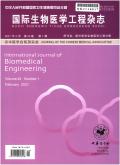Hearing Aids of the Future: A Simulation Study
引用次数: 0
Abstract
Modern hearing aids are a derivative of bulky systems. Though the adaptability and effectiveness of hearing aid plays a crucial role, the current hearing aids fail to account these factors in different listening situations due to the limitations in their signal processing abilities. To tackle this issue, the current paper presents a simulation study which highlights the use of machine learning for dynamically programming hearing aids for different listening situations. To represent these conditions, a Deep Neural Network (DNN) was built and real time inputs of six different listening situations were taken. The dynamical programmability of the DNN was compared with that of a classic fit hearing aid. The final results were used to understand the impact of DNN on speech processing abilities of a single fit hearing aid. Keywords : adaptive, hearing aid, listening condition, machine learning, neural network Cite this Article: Akshay Mendhakar, Sneha K C, Devi N, Renuka C. Hearing Aids of the Future: A Simulation Study. International Journal of Biomedical Engineering . 2020; 6(1): 18–23p.未来的助听器:模拟研究
现代助听器是笨重系统的衍生物。虽然助听器的适应性和有效性起着至关重要的作用,但目前的助听器由于其信号处理能力的限制,无法在不同的听力情况下考虑到这些因素。为了解决这个问题,本文提出了一项模拟研究,该研究强调了机器学习在不同听力情况下动态编程助听器的使用。为了描述这些情况,我们构建了一个深度神经网络(DNN),并获取了六种不同听力情况的实时输入。将DNN的动态可编程性与经典助听器的动态可编程性进行了比较。最后的结果被用来了解深度神经网络对单个助听器语音处理能力的影响。关键词:自适应,助听器,听力条件,机器学习,神经网络引用本文:Akshay Mendhakar, Sneha K C, Devi N, Renuka C.助听器的未来:模拟研究。国际生物医学工程杂志。2020;6 (1): 18-23p。
本文章由计算机程序翻译,如有差异,请以英文原文为准。
求助全文
约1分钟内获得全文
求助全文

 求助内容:
求助内容: 应助结果提醒方式:
应助结果提醒方式:


